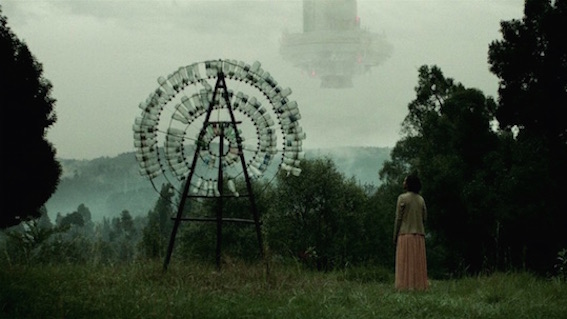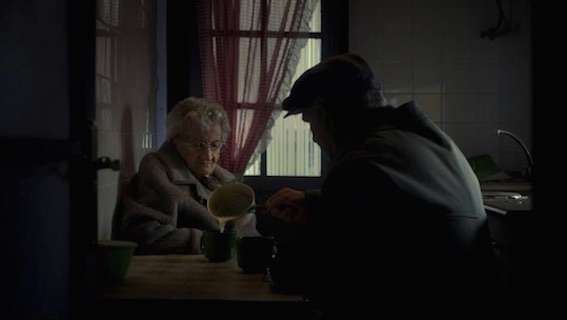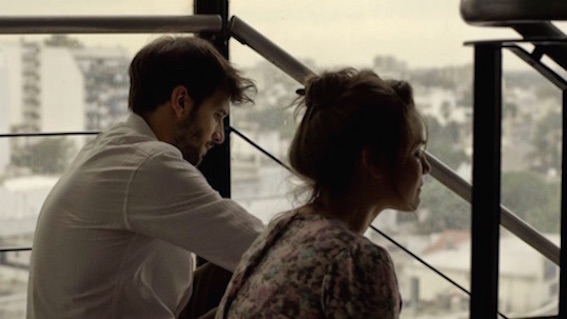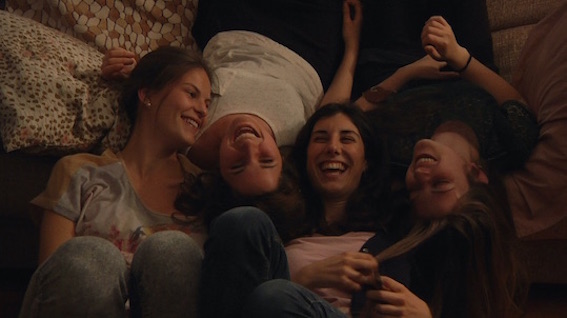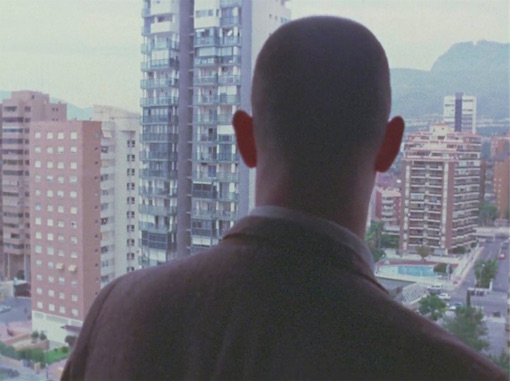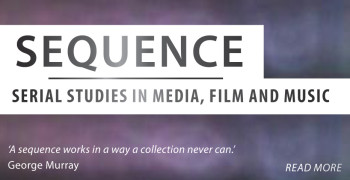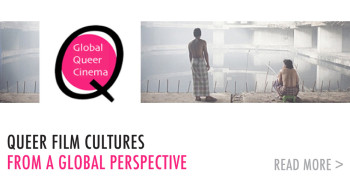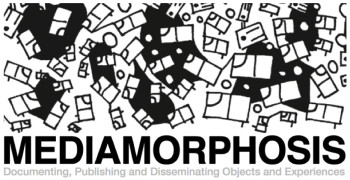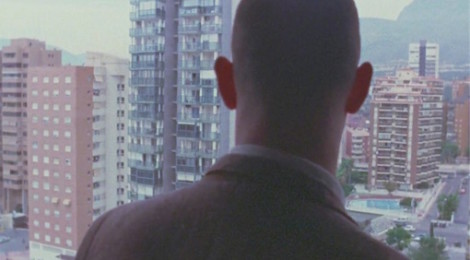
Eclectic Futures in Barcelona: D’A Festival 2015
Today, Mediático is delighted to present an entry by one of our regular contributors Rebecca Naughten. Rebecca has a blog on Spanish cinema, Nobody Knows Anybody.
The 5th edition of D’A – Festival Internacional de Cine D’Autor de Barcelona (D’A Festival for short) ran for ten days, showing 70 films in the Catalonian capital between 24 April and 3 May. Organised by the same team – headed by festival director Carlos R. Ríos – responsible for the now-defunct Barcelona Asian Film Festival, the experienced precision with which the still relatively young D’A Festival operated across its three venues (Aribau Club cinema, CCCB [Centre of Contemporary Culture Barcelona], and Filmoteca de Catalunya) was noticeable – screenings and Q&As ran to timetable, the queuing was orderly, and the staff and volunteers were friendly and helpful. The quality of the films was high and I had the chance to see titles from around the world during my five days in Barcelona. Given the increasingly conservative state of film exhibition in Spain (a cautiousness driven partly by the economic factors that have led to the closure of hundreds of cinemas and the more adventurous distributor-exhibitors (e.g. Alta Films) having either to shut up shop or severely scale back their activities)[1. Noucinemart (the company behind D’A Festival) also distributes films connected to the festival. From the 2015 edition they are distributing No todo es vigilia / Not All Is Vigil (dir. Hermes Paralluelo) and El camí més llarg per tornar a casa / The Long Way Home (dir. Sergi Pérez).], D’A Festival offers local cinephiles the opportunity to see films that won’t make the commercial circuit, and places an emphasis on less conventional works in a programme that nonetheless encompasses a broad range of cinematic styles and voices.
Those local cinephiles bought approximately 10,000 tickets to see the films on offer in 2015, a steady increase on the 7,000 who attended the festival’s first edition in 2011. In addition to the film screenings, the festival also organises activities to maximise the participation of different sectors of the community. These range from traditional post-screening Q&As, roundtable discussions involving filmmakers and critics, industry events, and training for young filmmakers. This year director Abbas Kiarostami and his team worked with 50 workshop participants for ten days in April to create 50 short films inspired by Catalonia – the former Palme d’Or winner also gave a directing masterclass during the festival – and there were also several roundtable panels of Spanish filmmakers discussing topics such as ‘authorship and gender’, ‘post-humour’, and ‘(im)possible futures’. The outreach of the festival has also been extended in the past by sections of the programme going on tour after the festival proper – retrospectives of Guy Maddin and Claire Denis subsequently screened in other regions of Spain, and the 2014 focal point ‘Un impulso colectivo’ [A Collective Impulse] [2. I have written about the ‘Un impulso colectivo’ films as a group on my blog.] (centred on the so-called ‘other Spanish cinema‘) travelled to Buenos Aires earlier this year.
As befits the festival’s name, the central structure of the programme was organised around directorial career progression: ‘Talents’, ‘Transitions’ and ‘Directions’. The latter effectively collected the best of recent festivals in the form of new works by established directors, including films by Alex Ross Perry, Peter Strickland, Bruno Dumont, and Hong Sang-soo. In contrast, ‘Talents’ focussed on emerging international filmmakers (with no more than three films to their name) and for the first time offered a prize of 6,000€ (approx. £4,256) awarded by a jury of industry professionals, in parallel to the festival’s already-established Critic and Audience awards (the latter is voted for by those attending screenings across the breadth of the festival). D’A Festival has developed a reputation for championing homegrown filmmakers and the fourteen ‘Talents’ included a number of Spanish and Catalan directors.
On the Spanish side of things, the standouts in the category were Ion de Sosa’s experimental sci-fi Sueñan los androides / Androids Dream, in which a killer hunts his prey around Benidorm in 2052, and Hermes Paralluelo’s No todo es vigilia / Not All Is Vigil, a moving and humorous docu-fiction centring on the director’s grandparents as old age and worsening health hinder their desire to stay together at home. Meanwhile Latin American highlights included Obra (dir. Gregorio Graziosi) – a visually stunning and aurally distinctive meditation on architecture and buried family secrets in São Paolo – and the excellent performances in Juan Schnitman’s thriller-like relationship drama El Incendio / The Fire, in which the imminent purchase of a house in Buenos Aires causes violence to spill into the domestic space. The latter won the Critic’s award with the jury highlighting the film’s “capacity to maximise the performance of its selected narrative tools, creating an intense atmosphere and seamlessly maintaining it, and for the decisive contribution of the two leads”. Argentina was also the recipient of the main ‘Talents’ prize, awarded to directorial debut Juana a los 12 / About Twelve (dir. Martin Shanly) – the jury commended the production for “the subtle richness of nuance with which it treats the undefined territory of puberty, inserted into a humanly hostile context”. However the Audience award went to a Catalan film so popular with local audiences that the original screenings sold out, Les Amigues de l’Àgata / Agatha’s Friends. The joint directorial debut of Alba Cros, Marta Verheyen, Laia Alabart, and Laura Rius originated as their final thesis project for the Audiovisual Communication degree at the Universitat Pompeu Fabra and revolves around four female twenty-somethings who have been friends since childhood.
Les Amigues de l’Àgata‘s success shows D’A Festival’s commitment to local filmmakers creates opportunities for films to reach broader audiences. Additionally, whereas they have previously dedicated strands specifically to Catalan or Spanish cinema, this year they decided that the homegrown films should be allowed to stand alongside international productions and integrated them into the programme accordingly. This was especially fruitful in the ‘(Im)Possible Futures’ section, a collection of low-voltage science fiction(s) representing dystopias with connections to (nightmarish) current realities – for example, in comedy El arca de Noé / Noah’s Ark (dir. Adán Aliaga and David Valero) it’s 2020 but Mariano Rajoy is still Prime Minister and inter-dimensional travel seems the only way to escape the economic crisis. Alongside films such as Jonathan Glazer’s acclaimed Under the Skin (which has yet to be released in Spain), the section put an emphasis on Spanish interpretations of the theme and included the influential short films of Velasco Broca [3. Velasco Broca’s short films are available to view at PLAT.tv, a platform that hosts a wide range of experimental and independent Spanish films.] and Crumbs (dir. Miguel Llansó), an epic adventure across a post-apocalyptic Ethiopian landscape. The latter was my favourite film of the festival. Velasco Broca, Miguel Llansó, Ion de Sosa, and Sueñan los androides co-writer Chema García Ibarra participated in the roundtable panel on (im)possible futures and expanded on the idea of ‘sci-fi castiza’. It was an interesting talk, not only in terms of their discussing the opportunity that science fiction gives to critique current social realities but also in how it revealed collective collaboration across this specific set of filmmakers (they have worked on each others’ films)[4. See also: ‘Blade Runners in Benidorm‘, my interview with the Sueñan los androides pair.].
The work of these filmmakers highlights that limited (financial) resources do not signify a lower level of technical competence, or limited ambition – each of their films is imaginative and manifests their own visually idiosyncratic style. Together they stand for the best of what D’A Festival aimed to present in 2015: an eclectic and pluralistic vision of contemporary cinema’s capabilities.[5. El Incendio, El arca de Noé, and Crumbs will reach UK shores in July – they are screening at the East End Film Festival.]
Notes

